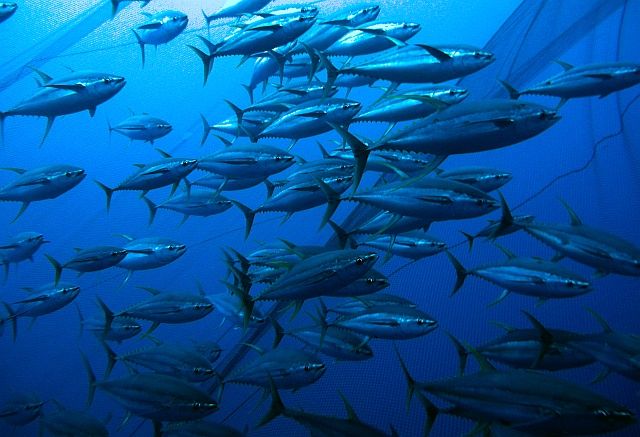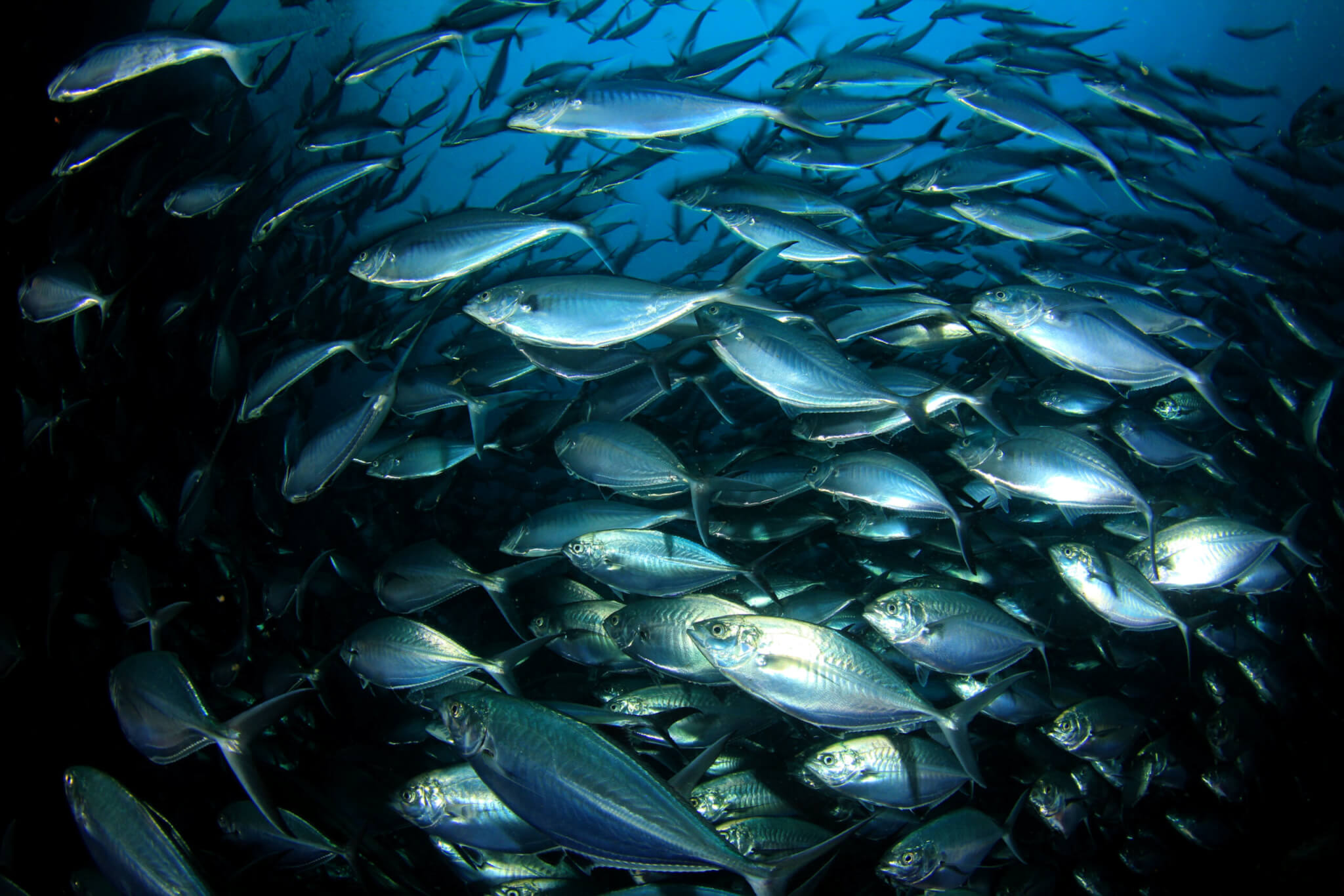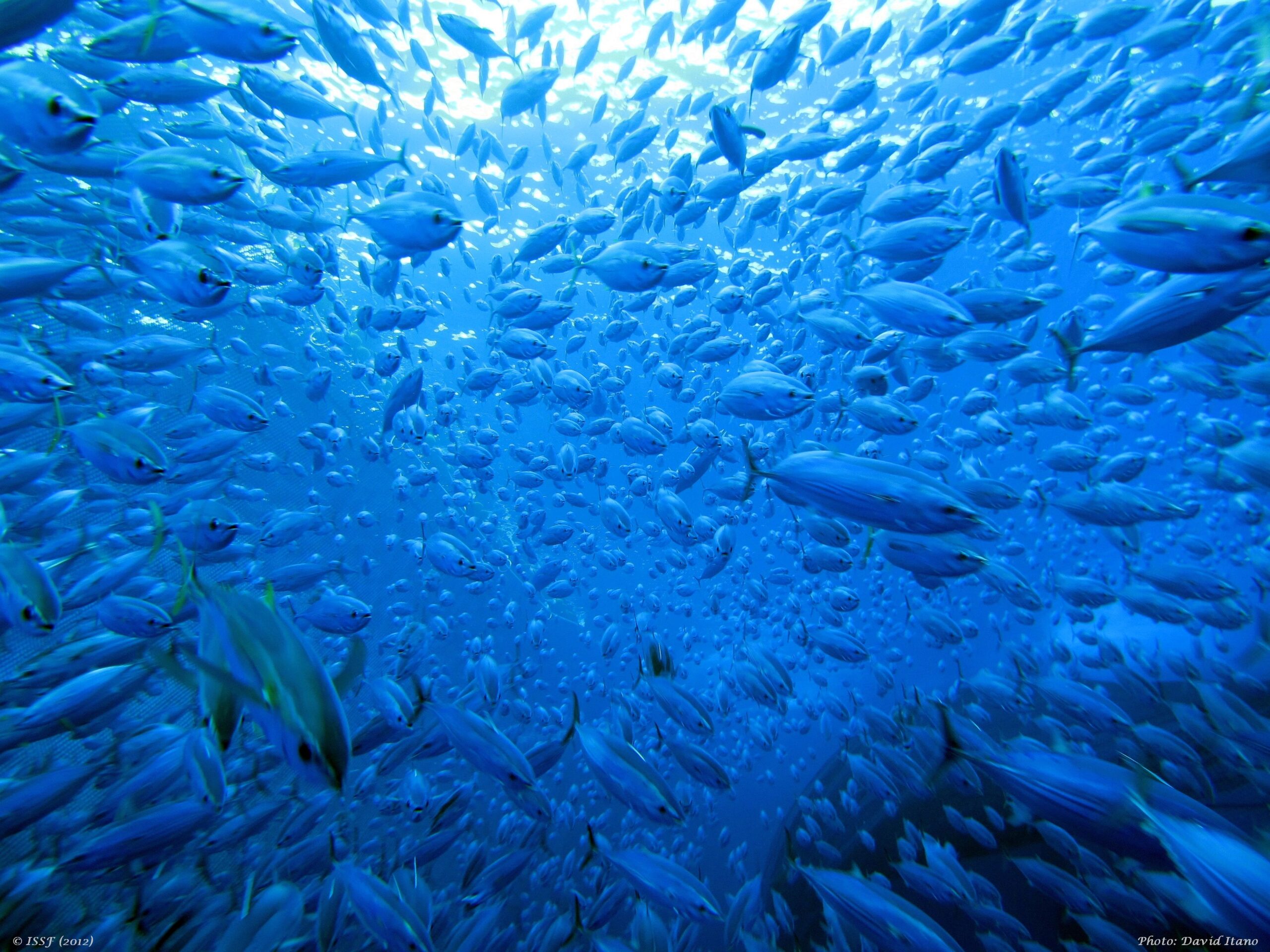
ICCAT Must Rebuild Atlantic Ocean Tuna Stocks and Expand Management Procedures
The International Commission for the Conservation of Atlantic Tunas (ICCAT) is responsible for the conservation and management of tunas, sharks, and other highly migratory species in the Atlantic Ocean. At their annual meeting in November, ICCAT members must focus on fulfilling the Commission’s mandate and ensuring the sustainability of its fisheries.
ISSF urges members and cooperating non-members at the annual meeting of ICCAT to take the following priority actions.
Adopt a new recommendation for tropical tuna management that includes stronger FAD management.
For the fourth year in a row, ISSF is asking ICCAT to adopt a strengthened tropical tuna measure that maintains bigeye and yellowfin stocks at sustainable levels and improves the management of FADs.
Following last year’s annual meeting, the Commission once again rolled over its conservation measure for tropical tunas, which kept management safeguards for these stocks in force throughout 2024. Needed improvements to the tuna measure, including for FADs, escaped agreement due to difficult and long-lasting allocation negotiations.
This year, ICCAT must adopt a new recommendation for tropical tuna management. That recommendation must ensure bigeye and yellowfin tuna stocks are maintained at sustainable levels, which will require stronger measures to reduce yellowfin catch.
An updated measure should fully allocate the total allowable catch (TAC) between ICCAT members, especially for yellowfin tuna stocks. Since it came into effect in 2012, the Atlantic Ocean yellowfin tuna TAC has been exceeded every year but one. Additionally, the TAC is not allocated by member or gear, making it impossible to identify non-compliance. A 2024 assessment estimated the stock to be close to the biomass and fishing mortality levels that support maximum sustainable yield (MSY), and projections at the current catch level indicate that the stock will become overfished. Stronger management measures are needed to reduce the yellowfin catch.
ICCAT must also maintain the current TAC for Mediterranean albacore. A 2024 stock assessment of Mediterranean albacore resulted in different stock status outcomes, based on two differing data inputs. Projections made under either outcome indicate that the current TAC of 2,500 tonnes will allow the stock to continue to rebuild.
Finally, ICCAT must include strengthened fish aggregating device (FAD) management as part of a revised tropical tuna conservation measure. In recent years, discussions on allocation surrounding the tuna measure have put aside important actions for improved FAD management— items like non-entangling and biodegradable designs, FAD recovery, FAD activation and deactivation rules, data use for science, and more. ICCAT must now bring its FAD management in line with best practices. If the Commission fails to agree to a new tuna measure, and merely extends the current recommendation for another year, a stand-alone FAD measure that includes best practice items that must be adopted.
Expand the adoption of management procedures for more tuna stocks, especially western Atlantic skipjack.
ISSF and partners have consistently pressed for the accelerated adoption of management procedures (or harvest strategies) for tunas across all RFMOs. Management Procedures (MPs) provide a modern mechanism for fisheries management that accounts for uncertainty in an explicit, precautionary manner.
Although ICCAT has previously adopted MPs for some stock — namely albacore and Atlantic bluefin tuna — we were disappointed that ICCAT failed to act on new harvest strategies in 2023. This year, we are again asking the Commission to adopt a harvest strategy for western Atlantic skipjack as recommended by its Standing Committee Research and Statistics (SCRS). In the same vein, ICCAT should also agree to multi-stock management objectives for bigeye, yellowfin, and eastern skipjack tuna stocks.
MP development involves detailed work by scientists, managers, and stakeholders. As many ICCAT stocks do not have an MP yet, it is important to finalize and adopt those that are well developed and to prioritize future MP work for other stocks.
Although ICCAT has made some progress in recent years toward science-based management, significant work remains to ensure healthy fisheries in the Atlantic — especially regarding improved tuna management measures and the expansion of management procedures. By implementing the recommendations highlighted above, the Commission can take vital steps toward meeting its mandate to scientifically and sustainably manage its fisheries.


